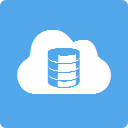The Environmental and Sustainability Big Data Era is Here
Move over ‘social media’ and ‘apps’, there’s a new buzzword in town. And it’s beginning to roll off the tips of the tongues of techies just like ‘green’ does for environmental professionals. They call it ‘big data’.
Big data refers to the massive amount of data compiled over time that becomes difficult to manage and analyze due to its size. When you think about all the environmental and sustainability information that’s being collected nowadays- analytical data, emissions data, geology, water quality, toxic waste data, hazardous materials, health and safety data, exposure data, as well as videos, photos, activity logs, and social media posts – when does it become too much? Because of the enormous quantity of environmental data, we begin the difficult task of looking for useful information, like searching for a needle in a haystack, and we often end up never finding it. We are witnessing a huge data explosion happening in our industry and few companies are ready to deal with the data avalanches heading their way.
Peter Thiel, co-founder of Palantir, the California start-up working to transform how information is analyzed, has an insightful take on this topic. “Most of ‘big data’ is a fraud, because it is really ‘dumb data,’” he says. “For the most part, we would need something like artificial intelligence to turn the ‘dumb data’ into ‘smart data,’ and the reality is that we are still pretty far from developing that sort of artificial intelligence.”
The unavoidable truth is that all this information can become a problem, and can easily overwhelm those dealing with it- to the point where the information’s value is completely overlooked. However, while technology is far from handling this perfectly, it can still arise to the challenge of placing big data on a sensible diet. By sensible, I mean breaking down the fat into healthier, more digestible chunks. This functionality helps to cure headaches and quells the instinct to immediately sweep big data under the rug. So, how can this much-needed level of sensibility be reached in the environmental and sustainability industry?
Enter: the Cloud. Web-based, user-friendly platforms have the capability to store large amounts of data while also dissecting and organizing it into more manageable and comprehensible bits of information. Locus Cloud was developed specifically as a big data management platform for the environmental and sustainability industry. It gives large corporations dealing with big data the ability to pull essential facts and intelligence out of the depths of information overload and turn it into actionable information that not only helps with compliance and reporting, but also stands to significantly lower the company’s operating cost.
It’s time for today’s environmental, health, safety, and sustainability professionals to capitalize on the benefits that big data present. Stop quivering with intimidation, stand up and look your big data square in the eye, and wring it like a wet towel, squeezing out all the value that you possibly can.


